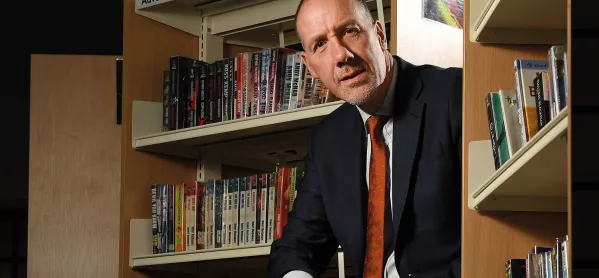As a child, I always knew I was in the bad books if my mother referred to me as “Geoffrey”.
As soon as the reassuringly familiar “Geoff” was banished, then there was trouble ahead. And if ever she unleashed both linguistic barrels, ominously calling up the stairs “Geoffrey Barton: get down here now”, then the double namecheck signalled that a tempestuous few hours lay in store, a telling-off of epic proportions for misdemeanors now forgotten.
Such, I suppose, is the stuff of many of our childhoods.
Except that I hadn’t really recalled any of this, the mental flotsam of my early years, until today. It wasn’t that I suddenly underwent a Freudian moment of unleashed traumas, or stumbled into some unexpected vortex of psychotherapy.
It was far simpler. I merely read the report of the House of Commons Public Accounts Committee.
Teacher retention report
This worthy group of 16 cross-party members of parliament were doing what they are charged with doing. They were holding the Department for Education to account on two of the topics that matter most for the education of our nation’s - the issues of teacher retention and development.
Their report doesn’t make for comfortable reading. “Ouch” would be the polite four-letter way of summing it up. Because from the outset, the committee’s tone is withering, and no punch is left unpulled.
Here’s a flavour of what the MPs say:
“The Department has failed to get a grip on teacher retention…The Department does not know enough about why more teachers are leaving before retirement…The Department does not have any particular initiatives to address cost of living issues’.
And so it goes on - a report of devastating frustration about an issue that everyone in schools and colleges has long known is of critical importance.
‘Teaching needs overhauling’
So I’m hoping that the MPs’ critique moves us forward to an era of action that helps us to make teaching a career that is much better at retaining and developing people.
The ‘us’ in that sentence is significant because, in truth, the solutions don’t all lie in that Westminster bunker. We delude ourselves if we think that the Department can, in isolation, make this happen.
Here’s why: teaching as a career desperately needs overhauling. My two sons, aged 25 and 22, wouldn’t consider becoming a teacher. Like so many youngish people, they see it as inflexible, old-fashioned, punishing in its accountability and unattractive in its benefits. It’s not a career that meshes with the kind of lifestyle they crave. It’s too all-consuming.
That’s why I welcome the Department’s current consultation paper, Strengthening Qualified Teacher Status and Improving Career Progression for Teachers. There are some quietly and determinedly radical proposals in here - extending the initial phase of induction to embed essential skills and knowledge, making continuous professional development a core entitlement rather than a twilight-hour chore, trialling teacher sabbaticals, rethinking what flexible working might look like.
The document shows a Department that is thinking more innovatively than might be assumed from the findings of that Public Accounts Committee report.
This is where the government - working with the profession - can help finally to reconceptualise the career of teaching. We need a career strategy that is no longer predicated on the classic pattern of promoting good teachers out of the classroom.
Deepening our skills
If teaching is the creative, empathetic, joyful career that many of us know, then professional progression should mean deepening our skills, sharing our expertise, coaching the next generation of recruits.
And then there’s workload. The government has to act on this - with an end to continuous reforms, disproportionate monitoring, and underfunding that increase the pressures on schools and colleges.
But those of us in leadership have responsibilities, too. If I were still a headteacher, I hope I’d have the confidence to be bolder about this issue.
We have to do all we possibly can to extinguish unnecessary workload. We have to make sure that our teachers are not overloaded with excessive marking, instead trusting their professional judgements without them having to justify them. We must give teachers much more freedom to provide high-quality, whole-class feedback - and to use technology to improve the nuance and personalisation of good assessment. We really must do this.
Today’s parliamentary committee rightly shows a profession on the brink of crisis. It castigates the Department for not “getting a grip” on the situation. In this, it is right. But, in truth, unpalatable as it may be to say it, this isn’t just about them. It’s also about us.
Geoff Barton is general secretary of the Association of School and College Leaders. He tweets @RealGeoffBarton
Want to keep up with the latest education news and opinion? Follow Tes on Twitter and Instagram, and like Tes on Facebook




